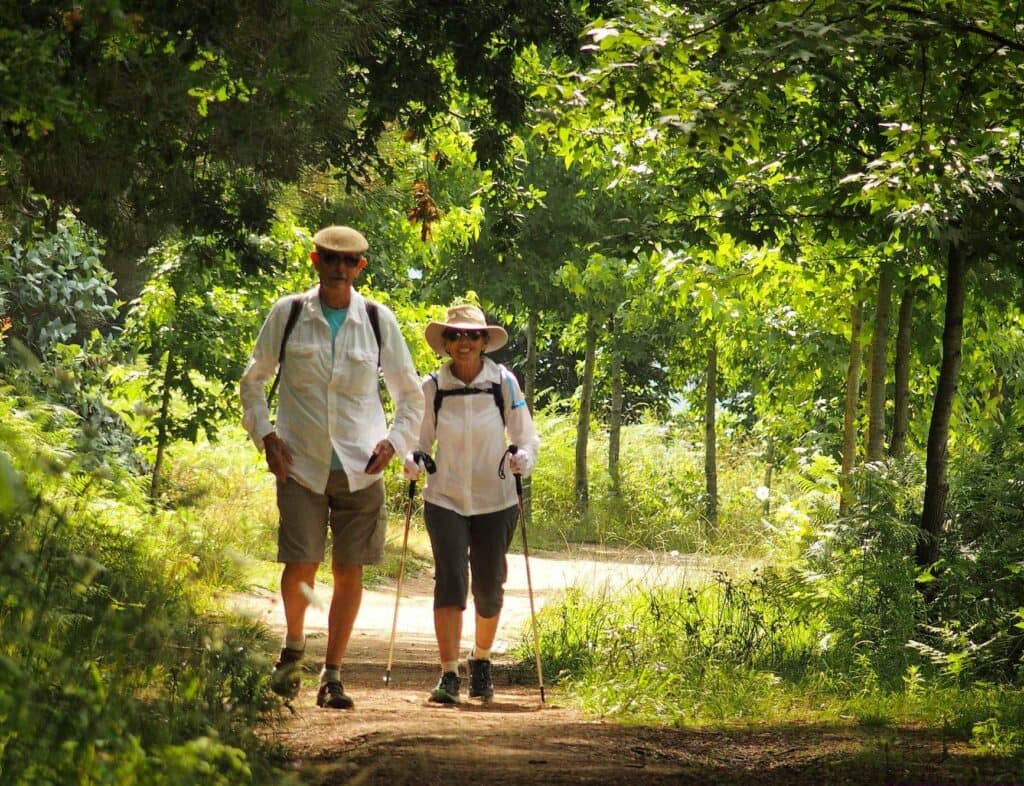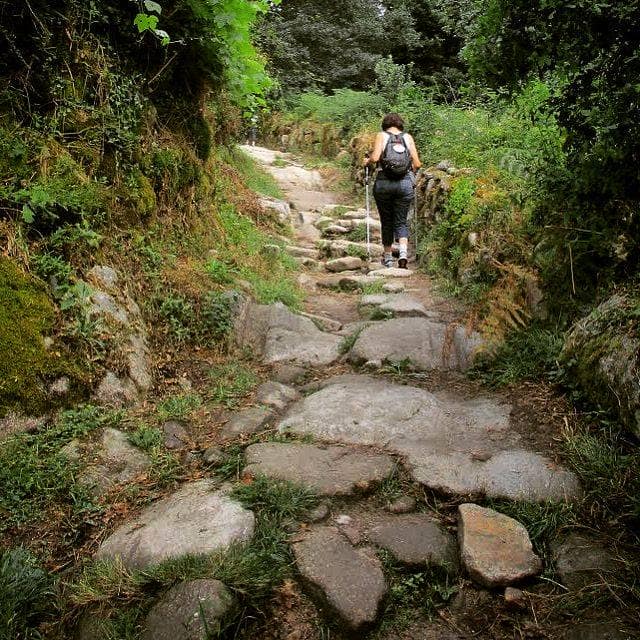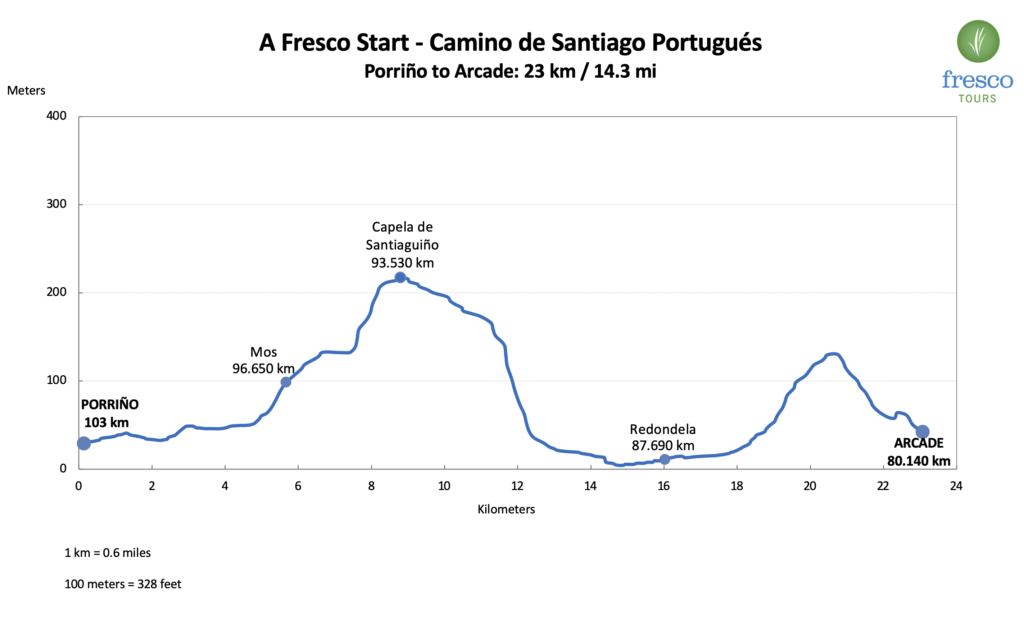Today you walk from O Porriño to Arcade, You soon notice over the following days that you are walking through the wine-producing region of the Rías Baixas. This region extends throughout most of the west coast of the Province of Pontevedra, which roughly corresponds to the south-western part of Galicia. For much of our walk, dozens of vineyards line the Camino, many on what appear to be small family plots. Las Rías Baixas is perhaps the most famous of the wine-producing regions in Galicia, and the native white albariño grape, its flag bearer. Indeed, many Spaniards actually call this wine by the grape, albariño, instead of using the generic Rías Baixas.

The first village of significance after leaving O Porriño is Mos. Mos’s call to fame is the 17th-century Pazo de Mos, which proudly overlooks the small town square facing the church. This monumental example of local aristocratic architecture was standing in ruins until 2002 when a group of locals found the means and the funds to restore the pazo and provide the district with a space for cultural activities. From there you begin a gentle ascent to the Chapel of Santiaguiño de Antas at the top of the Chan das Pipas hill. Just after the chapel you pass another Roman milestone—another reminder of our progress!

Down the hill is the busy town of Redondela. This town is situated just south of the Ria de Vigo, and the estuary hugs the town from the north-west. From Redondela you can view the coast and its beaches, as well as the floating barges used to farm mussels and scallops, delicacies of the region. Despite its coastal beauty, Redondela’s main attractions are the two historic train bridges or viaducts that cross over the city. The two rail viaducts that span the town’s sky date roughly from the beginning of the 20th century and are both still in use.

After a rest and perhaps lunch, you continue your Camino to Arcade, where you spend the night. Arcade is a small summer coastal resort town, where local summer revelers flock to the beaches and seaside fun. The town is also home to the yearly Fiesta de la Ostra (Oyster Festival) that takes place in spring. Oysters are a local specialty here as the estuary waters are perfect for their farming.






